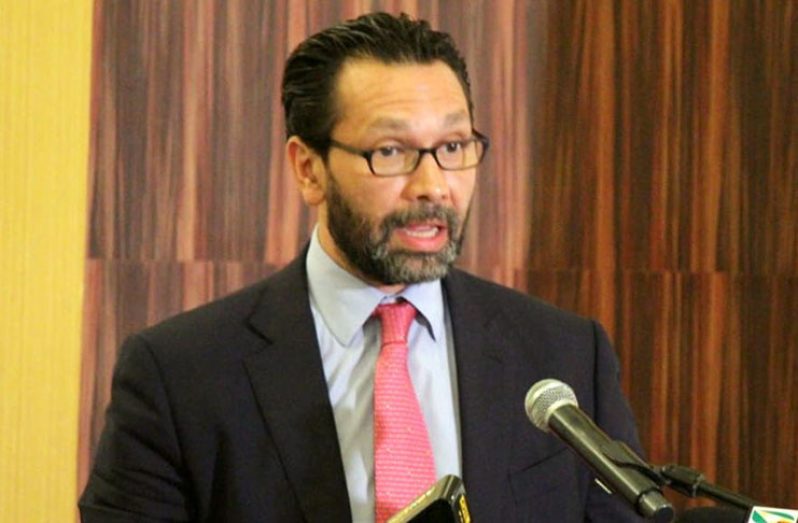— says Mexican professor
A ROBUST regulatory framework, along with a high level of transparency, is necessary for the development of a successful energy industry, Mexican Professor of Corporate Finance and Energy Investment, Jose Pablo Rinkenbach said.
Rinkenbach, speaking at a recent public forum on the energy sector, proffered some suggestions that Guyana should take into account as it pursues the development of a sustainable energy sector funded by the emerging oil and gas sector. These suggestions stem from lessons learnt by Mexico as an oil producing nation.
“You have to have a holistic approach, don’t think just about oil and gas but think energy because otherwise, you risk having the ‘Dutch Disease’ of putting all the resources into oil and gas,” the professor cautioned.
This disease, or “resource curse” as it is sometimes called, occurs when there is an increase in the economic development of a specific sector and a decline in other sectors. It negatively affects economies.
“You have to have a very robust regulatory framework,” the professor stressed, while positing what are some best practices for the country to pursue in this regard.
He explained that the energy sector must have three autonomous components: one for planning, one for regulation and another for operations.
According to him, the planning is usually done by the local energy ministry; the regulatory segment is managed by an “independent and technically very robust” petroleum or downstream industry while the operations are carried out by the actual participants in the industry.
The autonomy of these three components, he said, must be in both the fiscal and operational areas to allow for greater accountability and transparency. In fact, he deemed transparency as one of the most important lessons learnt in Mexico.
“Transparency is a critical issue,” he stressed, adding that all contracts should be made public since this protects the integrity of both the government and the companies involved.
Former BP top executive, now a professor at the Arizona State University, Gary Dirk, noted that transparency is very important.
“Decisions get made and people wanna know how exactly did that happen and it completely undercuts the confidence that people have, even when the plan is good it affects the confidence that people have,” Dirks explained.
At the forum, the Arizona professor expressed his pleasure that in Guyana, citizens are eager to know about the energy sector.
“It’s really exciting for me to see an audience of this size this evening. We wouldn’t get this in Phoenix (Arizona), and we’re five times the size of you,” he highlighted, adding: “It’s tremendous that there are so many of you willing to come and listen to people talk about energy.”
Professor Rinkenbach also shared with the gathering that as Guyana progresses in the development of the energy industry, the conversation needs to be switched from “national content” to “national development”.
“We tend to focus only on developing factors and not developing people, [but] you need to focus on educating, having varying competencies and having better persons in terms of capacities,” he said.
He opined that collecting data and assimilating information from within the sector is another area that the country can benefit from since the information can be garnered much faster than the resources are developed.
In Mexico, he related that over a four-year period, the country was able to develop more than 500 per cent of seismic information than it had collected in 100 years. Due to this information gathered, there were billions of dollars of investments in the sector which results in hundreds of millions of dollars in revenue accrued by the government.



.jpg)








